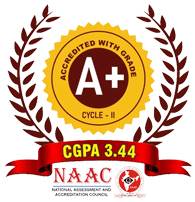Electrical Engineering
- Electrical Engineering
- About Department
- From HOD Desk
- Vision & Mission
- PEO & PSO, PO & CO
- Autonomy Constitution
- Faculty Profile
- Lab Facilities
- Innovations in Teaching – Learning
- Research & Publications
- Skill Development
- Faculty Achievement
- Students Achievements
- Student Association / Chapter
- Placement and Internship
- Center of Excellence
- Life @ Electrical
- Downloads
- Newsletter / Magazines
- PBL
- Final Year Projects
Introduction:
The Electrical Engineering Department of ZCOER is committed to providing a robust and practical learning experience for its students. To bridge the gap between theoretical knowledge and real-world applications, faculty members incorporate extra real-life numerical problems into their teaching methodologies. These additional exercises play a crucial role in reinforcing theoretical concepts, enhancing problem-solving skills, and deepening students’ understanding of electrical phenomena.
Purpose and Objectives:
The primary objective of integrating extra real-life numerical problems is to:
- Reinforce theoretical concepts with practical applications.
- Improve students’ mastery of electrical engineering principles.
- Enhance analytical and critical thinking skills.
- Prepare students for real-world engineering challenges.
- Increase confidence in solving complex engineering problems.
Methodology:
Faculty members design and introduce numerical problems that closely resemble real-world electrical engineering applications. These numerical are:
- Developed based on industrial case studies, engineering projects, and contemporary challenges in the field.
- Aligned with the curriculum while extending beyond textbook examples.
- Designed to simulate actual engineering problem-solving scenarios encountered in professional practice.
- Regularly updated to reflect advancements in eletrical engineering and industry trends.
Impact on Student Learning:
The inclusion of real-life numerical exercises has resulted in several academic and professional benefits for students:
- Enhanced Understanding of Topics: By working on problems derived from real-world applications, students gain a deeper grasp of electrical principles.
- Improved Problem-Solving Abilities: Exposure to practical scenarios fosters the ability to analyze and solve complex engineering challenges.
- Better Preparation for Engineering Practice: Students develop skills that are directly applicable in industrial and research settings.
- Increased Confidence: Engaging with realistic numerical strengthens students’ confidence in their ability to tackle engineering problems.
Conclusion:
The integration of extra real-life numerical exercises in the teaching-learning process at ZCOER’s Electrical Engineering Department has significantly enriched students’ educational experiences. By aligning theoretical learning with practical problem-solving, this approach ensures that graduates are well-equipped with the skills and confidence required to excel in their professional careers.
Submit your review | |
1 2 3 4 5 | |
Submit Cancel | |

